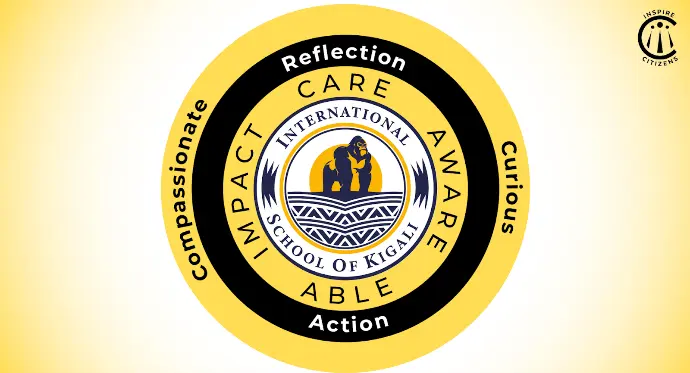HOME > STUDENT LIFE > SERVICE LEARNING
Service Learning

ISK’s Service-Learning Vision
ISK seeks to develop students as compassionate and curious global citizens. To that end, we aspire, through service-learning, to engage students in meaningful change by “learning from and acting with” local and global communities.
ISK’s Service-Learning Mission
ISK uses the service-learning, empathy-to-impact cycle, embedded in curriculum, clubs and after-school activities, so that students take responsibility for their world (Care), learn from other people in their world (Aware), develop the skills to participate in their world (Able), and act for meaningful change in their world (Impact). This means that students will act on their learning, and learn from their action, always in a posture of humility and reflection. As students engage in service-learning, ISK stresses the importance of reciprocal partnerships of learning and action with communities and organizations in our local place in Rwanda.
ISK’s Service-Learning, Empathy-to-Impact Cycle
ISK has adopted from Inspire Citizens an empathy-to-impact service-learning model. This cycle of Care, Aware, Able, and Impact supports the vision and mission of ISK.
The service-learning cycle begins with building empathy regarding an issue, problem or community.
The cycle moves to growing our knowledge and understanding about the issue, learning directly from community voices whenever possible.
Service-learning units are connected to curricular standards, and thus include components that students must know, understand and be able to do.
Finally, students apply their learning in meaningful action.
Throughout the process, ISK students engage in reflection on themselves and their learning. The cycle starts with care and results in impact, both arising from compassion for others. Along the way, students increase their knowledge, understanding and skills, deepening their curiosity about the world around them.
Meaning of Service-Learning at ISK
To better understand the concept of service-learning aligned with the ISK service-learning vision and mission above, it is helpful to unpack each part of the concept individually.
Refers to action that we take in the world, on both local and global levels, based on our sense of responsibility for addressing problems, righting injustices, helping others, and making the world better.
- Risk of Service Without Learning: We can sometimes act from good intentions, but with ignorance, biases, and prejudice. We can assume that we know the solution to a problem and impose it upon others. We can assume that our vision of a better world is applicable to all. These assumptions can lead us to ineffective, or even harmful, actions; we end up “acting for” others.
Refers to the process of increasing our knowledge, deepening our understanding, developing our skills, and changing our behavior.
- Risk of Learning Without Service: Learning without action can end up disconnected from the world. Learning that’s not applied sometimes fails to transfer into practice. Learning left separated from action with others risks becoming detached “learning about” others.
"Learning From and Acting With"
Rather than learning about others from a distance and then assuming that we know something about their experience, we want to engage directly with others, particularly from community partners here in Rwanda. We wish to approach these relationships as learners, humbly seeking to learn from their experience and expertise.
Rather than assuming we have something to offer that will help or fix a situation for others, we want to join efforts that are already happening, support communities that are already acting, or partner on new actions together.